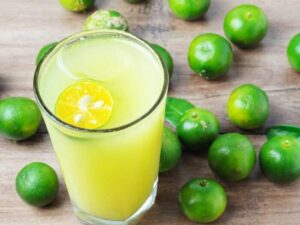Although high cholesterol is a hidden threat that millions of Americans face, it does not receive the media attention that other health issues do. The Centers for Disease Control and Prevention claim that “The total cholesterol level in about 94 million American individuals aged 20 or older is more than 200 mg/dL.
In the US, people with total cholesterol levels more than 240 mg/dL number 28 million.” High cholesterol frequently goes undetected, but a blood test can reveal whether your levels are excessive. High cholesterol can cause major health problems including heart disease, stroke, diabetes, and more if it is not managed.
1. Improve Your Diet
You may take measures to eliminate sources of cholesterol from your diet and eat a variety of foods that naturally decrease cholesterol. Avoid trans fats from oil, crackers, cookies, and cakes, as well as saturated fats from foods like red meat and full-fat dairy. Oatmeal, kidney beans, apples, and Brussels sprouts all contain soluble fiber, which lowers blood cholesterol absorption.
It has been demonstrated that whey protein from dairy products lowers LDL and total cholesterol and may decrease blood pressure. Salmon, walnuts, and flaxseed are examples of foods high in omega-3 fatty acids, although these foods don’t directly alter cholesterol levels.
2. Reduce Alcohol Consumption
Higher HDL levels, or “bad” cholesterol, can be attributed to moderate alcohol use. Healthy individuals should try to limit their alcohol use to one to two drinks per day, or avoid it altogether. Regular alcohol use can cause excessive cholesterol, as well as hypertension, heart failure, and stroke.
3. Quit Smoking
Smoking can raise heart rate and blood pressure, aggravating the negative consequences of high cholesterol-induced atherosclerosis “Marchese clarifies. “Giving up cigarettes increased HDL cholesterol levels by enhancing lung and blood circulation. Most ex-smokers get a 50% reduction in heart disease risk one year after stopping.
4. Lose Weight
Visceral fat tends to be more prevalent in people with abdominal obesity, which can negatively impact delicate organs like the liver. High cholesterol is a result of excess weight, which also puts more strain on the arteries and blood vessels. To boost weight reduction, try cutting out on sugary foods, adding nutritious snacks, and finding methods to get more exercise throughout the day.
5. Increase Activity and Exercise
Exercise increases the amount of HDL in your blood, which helps to minimize atherosclerosis and eliminate LDL. For healthy people, it is advised to engage in strenuous aerobics for 20 minutes three times per week, or roughly 30 minutes of moderate activity five times per week.
Find ways to increase your daily activity levels, such as taking afternoon walks, evening bike rides, participating in sports, or taking up an active pastime like swimming or hiking.
6. Exercise
The heart benefits from exercise. In addition to enhancing physical fitness and assisting in the fight against obesity, it also lowers risky LDL and raises healthy HDL.
According to the AHA, 150 minutes per week of moderate aerobic activity is sufficient to decrease cholesterol. In one research, 20 overweight women who exercised for 12 weeks lowered their levels of particularly dangerous oxidized LDL.
They worked out three days a week for 15 minutes each doing low-intensity Korean dance, resistance band training, walking, and jumping jacks.
Even low-intensity activity, like as strolling, improves HDL, but the effect rises when you exercise longer and harder.
7. Consider plant sterols and stanols
Numerous dietary supplements have potential for lowering cholesterol.
Plant-based substitutes for cholesterol include stanols and sterols. They are absorbed from the food similarly to cholesterol because they mimic cholesterol.
However, they don’t produce blocked arteries since several aspects of their chemistry are different from human cholesterol. They lower cholesterol levels instead by out-competing human cholesterol. When plant sterols are absorbed from the food, cholesterol is no longer absorbed.
Vegetable oils naturally include trace levels of plant stanols and sterols, which are also added to certain oils and butter replacements.

